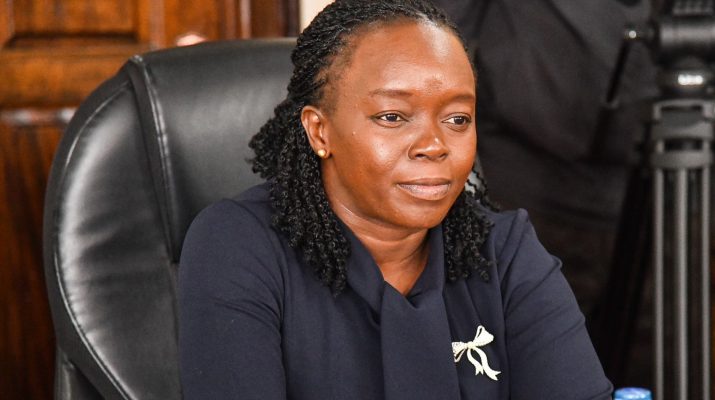By Dorothy Musyoka
The Cabinet Secretary for Health, Dr. Deborah M. Barasa, has called for urgent action to combat the rising burden of cervical cancer, a leading cause of cancer-related deaths among women in Kenya.
Speaking through Dr. Edward Serena during a cervical cancer awareness media briefing, Dr. Barasa emphasized the importance of transitioning from a curative healthcare model to one that prioritizes prevention.
“The fight against cervical cancer is not just about statistics; it’s about saving live.We must take bold steps to ensure every woman and girl has access to the preventive services that will protect them from this deadly disease,” Dr. Barasa remarked.
Citing the latest GLOBOCAN 2022 statistics, which reveal 5,845 new cervical cancer cases and 3,591 related deaths annually in Kenya, Dr. Barasa underscored the urgent need to intensify preventive care efforts.
Dr. Barasa pointed to the HPV vaccine as a critical tool in reducing the future burden of cervical cancer.
Her sentiments were echoed by Dr.W.Mugambi National Immunization and Vaccination Program (NVIP) highlighting the effectiveness of the vaccine.
“HPV vaccines are safe, effective, and available free of charge in all hospitals across the country,” stated Dr.Mugambi
The Ministry of Health is working to make these preventive services accessible to all women and girls across the country, ensuring no one is left behind.
The STOP Cervical Cancer coalition was lauded for its advocacy efforts, as were cancer survivors who continue to raise awareness about the importance of early screening and treatment.
Dr. Barasa called on the media to play a pivotal role in educating the public about cervical cancer prevention.
Additionally Dr.Joan Paula Head of National Cancer Control Program emphasized the pivotal role of HPV vaccine.
“We can eliminate cervical cancer by scaling up HPV vaccination, ensuring regular screening, increasing awareness, and guaranteeing access to treatment,” stated Dr.Joan Paula
According to the National Immunization and Vaccine Program (NVIP)indicates that, since 2019, over 3.3M girls in Kenya have received the HPV-1 vaccine, and 2.3M have received the HPV-2 dose.

